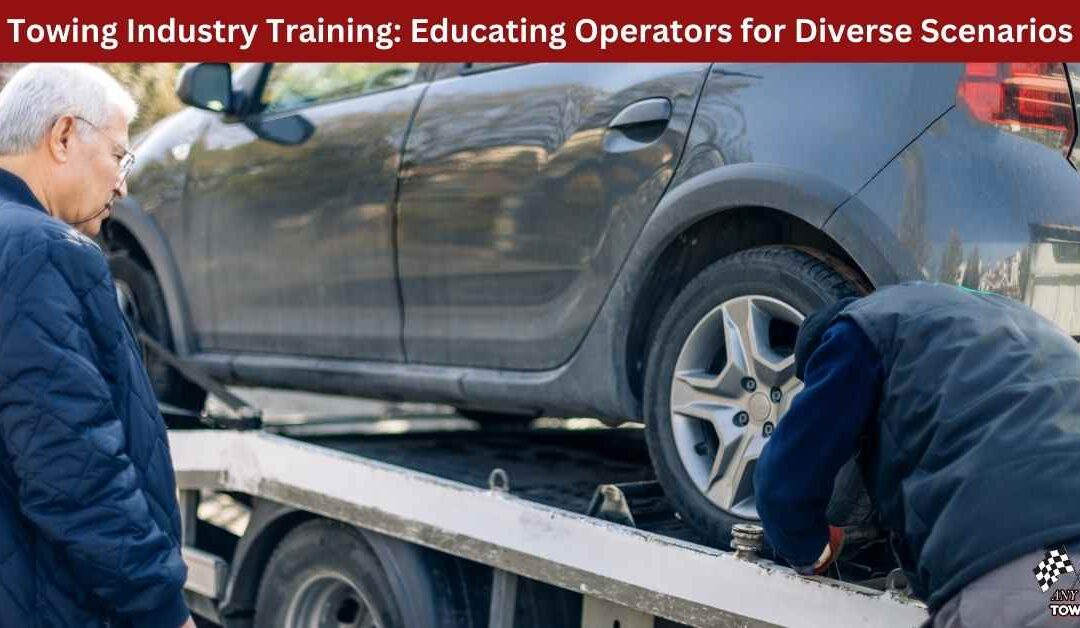When most people think of tow truck drivers, they imagine someone hooking up a car and hauling it away. Simple enough, right? In reality, towing is anything but simple. Operators face everything from roadside breakdowns on quiet suburban streets to multi-vehicle accidents on busy highways. Each situation is different, and the safety of drivers, passengers, and even other road users often depends on how well-trained the tow truck operator is.
Why Training Matters in Towing
Towing isn’t just about driving a big truck—it’s about problem-solving under pressure. A poorly handled tow can damage vehicles, cause accidents, or put lives at risk. Proper training ensures that operators not only know how to use equipment but also how to assess situations, communicate with drivers, and keep everyone safe.
For example, recovering a small hatchback from a side street is one thing. Uprighting an overturned semi-trailer on a freeway in the rain is an entirely different scenario. Operators need the technical skills and confidence to handle both.
The Different Scenarios Operators Face
Tow truck drivers encounter a huge variety of calls, such as:
- Accident Recovery: Clearing damaged vehicles quickly to keep traffic moving.
- Breakdowns: Safely assisting stranded drivers in high-traffic or unsafe areas.
- Heavy-Duty Tows: Managing buses, trucks, and machinery that require specialized equipment.
- Off-Road Recovery: Retrieving vehicles stuck in mud, ditches, or rough terrain.
- Specialty Vehicles: Handling luxury cars, motorcycles, or electric vehicles with extra care.
Each of these situations comes with its own challenges. Training prepares operators to adapt, think fast, and apply the right techniques without hesitation.
What Quality Training Looks Like
Strong towing training programs cover far more than just the basics of hooking up a car. They usually include:
- Safety Protocols: Protecting drivers, passengers, and operators during every job.
- Equipment Knowledge: Understanding how to use winches, flatbeds, dollies, and heavy-duty rigs.
- Customer Communication: Assisting stressed or shaken customers with professionalism and empathy.
- Traffic Management: Working with police, first responders, and traffic controllers.
- Specialist Skills: Learning advanced recovery methods for unique or difficult situations.
Some companies also invest in simulation training, where operators practice complex scenarios in a controlled environment before facing them on the road.
A Story from the Field
One of our operators recently attended a training session focused on electric vehicle recovery. EVs present new challenges—like managing high-voltage systems safely. Just weeks later, he was called to tow a Tesla involved in a minor collision. Thanks to his training, he knew exactly how to secure the vehicle without risking damage or safety issues. The customer was relieved, and our team reinforced our reputation as being capable and up-to-date.
Investing in People, Not Just Trucks
At the end of the day, tow trucks are only as good as the people operating them. By investing in training, towing companies build operators who are confident, capable, and ready for anything. For customers, that means safer recoveries, faster service, and the reassurance that their vehicles are in good hands.
For the industry, it means raising standards and proving that towing is a skilled profession—not just a job behind the wheel.
Now Any Car Towing is available in Botanic Ridge Victoria 3977.
Contact Us
Any Car Towing
10 Silvergum Pl, Cranbourne VIC 3977
0413 176 223


Recent Comments